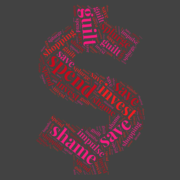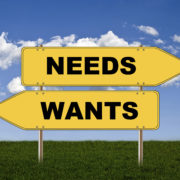Take off your financial mask and become financially empowered
As originally appeared in The Jerusalem Post on August 28th, 2020
One of the most frustrating aspects of the requirement of wearing masks in public is that it becomes tough to recognize people. In the last few weeks, I have been receiving calls and emails from friends who say they saw me in a particular place, and I didn’t respond to their head nod or wave.
About a month ago, a client who I had not seen in person for a few years, walked into my office wearing a mask. She was in town and decided to pop over and say hi. I had no idea who she was. I apologized profusely and explained, “that with your mask I am not 100% sure who you are.” She told me her name, and we both started laughing.
On the other hand, if you are looking for anonymity, the mask works wonders. My son dared me to keep the hair on my chin when shaving the rest of the beard I had been cultivating during the 3 weeks leading to and including the solemn 9th of Av fast. Then more of my kids got in on the action, and some dared me to go out in public with my little chin goatee. I said that it’s no problem because I’ll just wear my mask and no one will be the wiser. I went around for a full 24 hours before shaving it off before an important face to face meeting; no one outside of my family noticed.
While it may not be a corona mask, all too often, we hide behind some kind of ‘mask’ and refuse to disclose our financial situation to others. I just watched a news report about the number of kids who don’t have computers and will be unable to learn on Zoom when school opens in a few days. While my heart goes out to the kids, you see that they own a huge flat-screen TV, among other possessions. If your child’s education is really important, how about buying a more modest TV and buy a computer with the savings? Sort of ironic that in their need to get their child a laptop, their own financial mask slipped, and we all got a glimpse into some bad financial decision making. There is no need to buy the ‘best’ new computer; a refurbished laptop can do the job just fine for a fraction of the cost. While it’s easy to play the part of a victim, and have some generous stranger buy a brand new top-of-the-line computer, the fact is that even the child himself could have spent 10-20 minutes a day collecting deposit bottles and made enough money over the summer to buy his own laptop.
What many people don’t realize is that you really can change your financial future.
How can you take control of your finances and become financially empowered?
It’s not as hard as you think. You don’t need to be rich to be financially independent – in reality, you just need to be able to cover your expenses with your income while accounting for each expense, and managing to save as well. If you scale down your lifestyle, you can achieve independence on much more modest sums of money than you ever dreamed was possible. Here are some tips that can help get you on the path to financial empowerment.
Target date
It is essential to set a realistic date for when you’d like to be financially independent. As a guide for how much money you will need in the future, I tell clients that they need about 20 years’ worth of this year’s expense to make it. For example, if you spend $30,000 a year, you will need $600,000. Now keep in mind that any pension, bituach leumi, or social security income that you will receive will lower the overall amount that you need to save. For example: If you receive $20,000 a year in retirement income, then you will need to accumulate or earn another $10,000 as supplemental income, which means you would only need around $200,000 in savings to be independent.
Enable your money to work for you
Make saving and investing a priority. Make a habit of ‘paying yourself first’ every month. To balance your budget may be the first step to becoming financially empowered, but to ensure your financial future, you will need to invest as well. By allowing your money to work for you, you will have to invest a lot less over time. Let’s take that $200,000 goal. To get to that amount of money in the bank could take decades. But if you start investing early and continue over 15-20 years, you will only need to save less than half the amount. That’s the beauty of compounding investment returns.
Jump in
You don’t need to start with hundreds of thousands of dollars; you can start small if needed but START. The earlier you start saving, the bigger the nest-egg you should be able to accumulate over the long-term.
It’s time to stop hiding, get real, make saving and investing a priority and start your journey to become financially empowered.
The information contained in this article reflects the opinion of the author and not necessarily the opinion of Portfolio Resources Group, Inc., or its affiliates.
Aaron Katsman is author of the book Retirement GPS: How to Navigate Your Way to A Secure Financial Future with Global Investing (McGraw-Hill), and is a licensed financial professional both in the United States and Israel and helps people who open investment accounts in the United States. Securities are offered through Portfolio Resources Group, Inc. (www.prginc.net). Member FINRA, SIPC, MSRB, FSI. For more information, call (02) 624-0995 visit www.aaronkatsman.com or email aaron@lighthousecapital.co.il.








